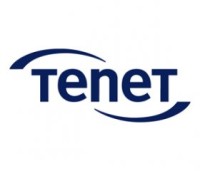(Updated at 2:15 p.m.)
WellStar Health System, fresh from abandoning a proposed deal with Emory Healthcare, has now landed a new potential partner.
The Marietta-based WellStar is beginning negotiations with Tenet Healthcare to buy Tenet’s five hospitals in Georgia — all in greater metro Atlanta.
The two organizations issued a statement Thursday confirming the start of “exclusive, non-binding discussions’’ about a potential sale of Tenet’s Atlanta-area hospitals and other facilities to WellStar.
“This is to ensure that these hospitals and facilities are best positioned to meet the needs of their communities and continue delivering high-quality health care for many years to come,’’ said the statement.
WellStar and Tenet declined further comment about the potential deal.
The wave of consolidation in the health care business was also evident elsewhere Thursday, with reports on a looming deal by Anthem to acquire fellow insurer Cigna.
And this week, Prime Healthcare Foundation announced plans to acquire the struggling Southern Regional Medical Center in Riverdale in south metro Atlanta.
The Tenet hospitals here include the 460-bed Atlanta Medical Center and the 202-bed North Fulton Hospital in Roswell. The latter is considered the biggest prize among the group due to its location in the affluent northern Atlanta suburbs.
Other health care organizations rumored to be interested in the Tenet hospitals in Georgia include Piedmont Healthcare and Northside Hospital.
Tenet, a for-profit company based in Dallas, Texas, operates 81 hospitals nationally. It has been trying for months to find a buyer for its hospitals in Georgia, where it has not reached the market power of other health systems.
The other Tenet hospitals in Georgia are Atlanta Medical Center-South Campus in East Point, Spalding Regional Hospital in Griffin, and Sylvan Grove Hospital in Jackson.
Formerly Georgia Baptist Medical Center, Atlanta Medical Center has been serving the Atlanta community for more than 100 years. AMC became a Level 1 trauma center in 2011.
Tenet has more than 4,300 employees in Georgia. In addition to the hospitals, employed physician practices and outpatient centers are included in the acquisition discussions.
It’s expected that the five Tenet hospitals would become nonprofit facilities under WellStar if a deal is ultimately reached.
Hospital systems look to get bigger
Last month, WellStar broke off talks to create a mega-merger with Emory Healthcare.
The merger discussions had gone on for months and were aimed at producing a giant hospital-based system – the biggest in Georgia and perhaps the Southeast.
Neither WellStar nor Emory gave a reason for the collapse of those negotiations.
A Tenet deal would be easier to complete because it would be an acquisition, and not a merger of equals, experts said. And from an antitrust standpoint, there doesn’t appear to be much – if any — geographic overlap in WellStar’s adding the five Tenet hospitals to its fold.
Hospitals in Georgia and around the nation have sought partnerships to help weather the rapid changes in health care, many of which were ignited by the Affordable Care Act.
Consolidation has shaken up different sectors of the health care industry.
Seeking cost savings and more clout, health insurers recently have stepped up their own combinations, led by Aetna’s proposed acquisition of Humana. And CNBC reported that Anthem, the parent company of Blue Cross and Blue Shield of Georgia, will announce a deal Friday to buy Cigna.
Such deals give insurers more power in negotiating prices with hospitals and physicians.
In turn, “hospitals need to get bigger,’’ said Dave Smith, a consultant with Kearny Street Consulting. “It gives them a little more leverage.”
Standalone or independent hospitals are in weaker positions when it comes to making deals with insurers to be in their networks, he added.
Smith called a potential WellStar/Tenet combination “a game-changer’’ in the metro Atlanta market. It would set up intense battles between WellStar and Northside Hospital for suburban patients north of Atlanta who have solid private insurance, Smith said. The two organizations have fought regulatory battles over medical facilities in the past.
The effect of a WellStar acquisition on consumers is difficult to assess.
For patients, the transaction should maintain access and most likely improve it, said Chris Kane, a consultant with DHG Healthcare. He said Tenet and WellStar both have contracts with the same major insurers.
“WellStar has a large physician network, and one would assume that Tenet’s medical staff members would be combined into WellStar’s broad system of care with independent and WellStar Medical Group doctors,’’ Kane said.
Craig Savage, a consultant with CMBC Advisors, a North Carolina firm, agreed that quality and access could improve as a result of such hospital deals. The bigger question mark, he said, is what hospital consolidation does to the price of medical services.
Georgia Watch, a consumer advocacy organization, raised questions about potential higher prices for patients when WellStar and Emory discussed a merger. Beth Stephens of Georgia Watch said Thursday that the new WellStar deal, if consummated, “could negatively impact the cost of health care. Research shows that large hospital mergers often lead to higher prices for consumers.”
Savage said Tenet has sought to focus on markets where it has substantial business. “They didn’t get the critical mass in Georgia that they needed,’’ he added.
Both WellStar and Tenet employees were informed of the acquisition talks Thursday.
In a letter to North Fulton Hospital employees, CEO Deborah Keel said that “Tenet believes that a system such as WellStar would help ensure our hospital’s long-term success for many years to come.”
Keel also said, “It could take several months before we reach a stage where we are ready to make any additional announcements. In the meantime, we are doing everything we can to minimize disruption from our primary focus, which is delivering high-quality health care.”




